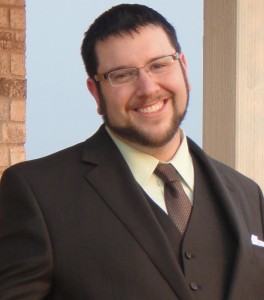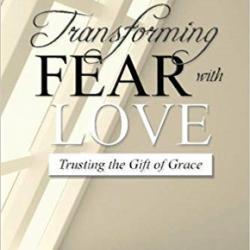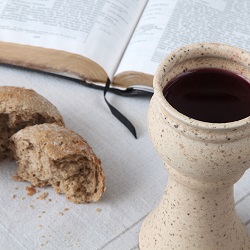By Jordan Dollar
“But aren’t you sad a lot?” is a question I get asked a lot… when the reply isn’t simply “oh.”

That question comes just after the question “what do you do for a living? A coworker brought her daughter into the office, and she was amazed that we were talking to one another and laughing. There are certainly some sad moments, but the reality is that working as a full-time hospice chaplain is one of the most enjoyable things I have ever done.
I tried congregational ministry and it wasn’t for me. That was a big surprise. I preached my first sermon when I was fourteen, felt a call to ministry at 15, and I spent the next seven years preparing to be a pastor. After seminary, hoping to jump start my career, I spent a year in a Clinical Pastoral Education, an intensive year-long residency in hospital chaplaincy. Some say that year is worth five years in the congregation in terms of how much you will learn about yourself and about working with people in crisis.
CPE was very hard for me, both personally and professionally, but even when I served as a pediatric trauma chaplain, there was something rewarding about it. When, after CPE, I got my first position as senior pastor I found myself volunteering as my town’s fire department chaplain to help “scratch the itch” of chaplaincy a bit. When, after two years in the congregational setting I found myself really missing chaplaincy and needing more balance, I took a side job as an on-call chaplain at a local hospital system.
When, after three years I burned out, I took a position as a full time hospice chaplain.
There are a lot of misconceptions about what hospice does, and therefore a lot of misconceptions about what a hospice chaplain might do. In hospice, the goal is to help you have the best end of life experience you can. Our patients set goals (to be pain free, to be as alert as they can be, to go bowling again), and we help to meet those goals.
As a chaplain, I assess my patients to help discover what is important to them. In some cases this means making sure that the staff understands and honors the patient’s spiritual traditions in the way they provide care. Other times I help my patients discover who and what it is important for them to make peace with and find closure.
Everyday I go visit with people who want someone to talk to because they’re lonely, because they’re trying to find meaning in their current experience or life up to this point, or because they’re not sure what to do next. The people and stories are remarkable. Fritz (all names have been changed) was a formerly homeless man with no family in town and no immediate family at all. He loved to bowl and danced ballet for three years. He wanted so badly to talk to someone but could needed a pretext. We drank coffee in his apartment and ate cake (he called this breaking bread with him), then we played cards and listened to jazz for almost three hours. With the card game to focus on, this once quiet man poured out his entire life’s story so that he could ask me if I thought he had had a good life.
Jackson is a man of great faith who has lingered on for many months, bedbound. When he first met me he was hurting so much with a sense of moral injury from his time in law enforcement that he was pretty sure he would go to hell when he died. He could not figure out why it was taking him so long to die. He used to beg his nurses to give him enough pain medicine to kill him. As we worked together over the months before his death we could find business he needed to finish, and simple pleasures he could still enjoy. Slowly he was able to see his remaining time as a blessing, not a curse.
Lucy is a woman in her late 90s with advanced dementia. She doesn’t make eye contact, fidgets, and babbles unintelligibly about things her daughter and I cannot see. She grew up in Baptist and Methodist churches and somewhere deep down, bits of that heritage remain. We have little worship services. When I read a familiar scripture, or when I sing an old hymn from her childhood churches she gets still, makes eye contact, and often afterwards will be able to speak a sentence or two, or even answer a question from her daughter.
Are there times when I am sad? Absolutely.
Do some losses sting deeply? Yes.
Are there some patients I fail to connect with? Daily.
Is there anything else I would rather do? No.
Where else can I spend my entire day visiting with people who are so willing to talk so openly with me? It’s not going to be right for every person who has heard the call to ministry, but it is the perfect place for me.
Jordan Dollar is a Cooperative Baptist Fellowship-endorsed chaplain who has served in congregational, hospital, and emergency services settings. He currently serves as a chaplain with Seasons Hospice and Palliative Care in St. Louis, Missouri. Jordan is a native of the St. Louis area and can be found in his garden, by his beehives, or with his wife and two sons.












